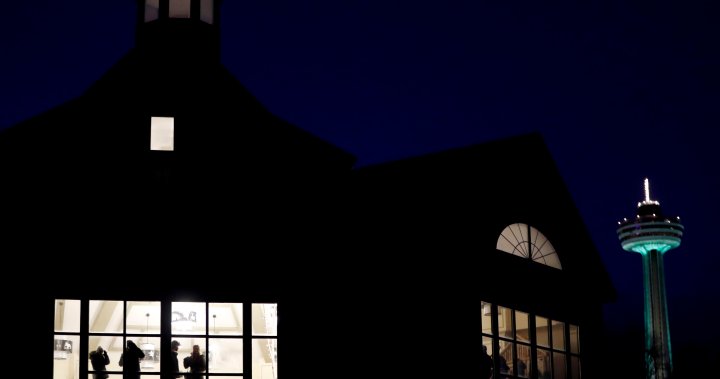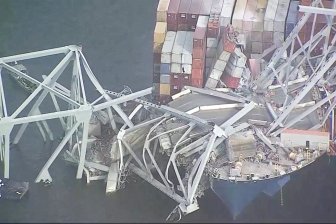Newly released figures from Immigration, Refugees and Citizenship Canada show the federal government spent more than $100 million housing asylum seekers at hotels in Niagara Falls over the last year.
Nearly 5,000 asylum seekers were sent to hotels in the tourist city between Feb. 1, 2023, and Feb. 1, 2024, according to the immigration department. Most were from Nigeria, Venezuela, Kenya, Turkey, and Colombia.
On average, the refugee claimants stayed for 113 days at a daily cost of $208 per person. The total bill for the year was roughly $115 million.
The cost includes “rooms, meals, services and security,” according to the department.

But it warns the tally is “incomplete” because immigration officials were not fully monitoring those expenses during the first part of 2023.
“The information requested between February and March 2023 was not systematically tracked in a centralized database,” the department said.
Costs incurred since Jan. 1, 2024, have not yet been tallied because Immigration, Refugees and Citizenship Canada “has not received most of the invoices” yet.
The email you need for the day’s
top news stories from Canada and around the world.
The breakdown was unveiled as part of an answer to an order paper question filed by Conservative MP Tony Baldinelli, who represents the riding of Niagara Falls, in the House of Commons in February and released last week.
Niagara Falls Mayor Jim Diodati was not available for an interview to discuss the figures.

But a report released by Niagara Region last year said the influx was stretching resources by putting “substantial and unmanageable pressure on Niagara’s already strained social support system.”
“Staff cautioned that the local affordable housing stock was virtually non-existent and expressed serious concern that asylum seekers would be presented with little in the way of housing options,” after their hotel stays, it reads.
The immigration department says “access to federally funded hotels for asylum claimants is currently being provided by IRCC on a temporary basis.”
Global News has asked how long the hotel program in Niagara Falls will last but did not receive a response by deadline.
In July 2022, Immigration, Refugees and Citizenship Canada began sending migrants arriving in Quebec to hotels in Niagara Falls, to reduce pressure on the neighbouring province’s services.
Quebec saw an increase in new arrivals, as tens of thousands of irregular migrants entered through Roxham Road, an unofficial border crossing between Quebec and New York state.
Ottawa shut down the route in March 2023, as part of a deal between Prime Minister Justin Trudeau and U.S. President Joe Biden.
Since then, refugee claims have risen sharply at Canadian airports, with most claimants landing in Montreal.
“I don’t think there is anything that any government in the world can do to really stem the flow of asylum seekers,” immigration lawyer Chantale Desloges told Global News in an interview last week. “The way that the world is right now, there is so much volatility.”
But Ottawa has faced growing pressure to reexamine its immigration policies, as Ontario and Quebec link the housing crisis, in part, to the rising number of temporary residents and asylum seekers.
In January of this year, Immigration Minister Marc Miller pledged an additional $362 million to temporarily house asylum seekers across the country.
During the announcement, he said there were roughly 7,300 asylum claimants staying in 4,000 hotel rooms in six provinces.
“This program is important because it gets shelters over people’s heads, particularly with the temperature that it is outside,” Miller said at the time.
But he added change is needed. “I think we owe it to Canadians to reform a system that has very much been a stopgap measure since 2017 to deal with large historic flows of migration.”
Miller said $100 million would go to Quebec, while Toronto would receive a “significant” amount.
But Ontario’s immigration minister said even if the province received the entire sum, it wouldn’t be enough to cover “the needs of Toronto, let alone all the other municipalities.”
— with files from Marc-Andre Cossette and the Canadian Press
© 2024 Global News, a division of Corus Entertainment Inc.






/cdn.vox-cdn.com/uploads/chorus_asset/file/25362056/STK_414_AI_CHATBOT_R2_CVirginia_A.jpg)



